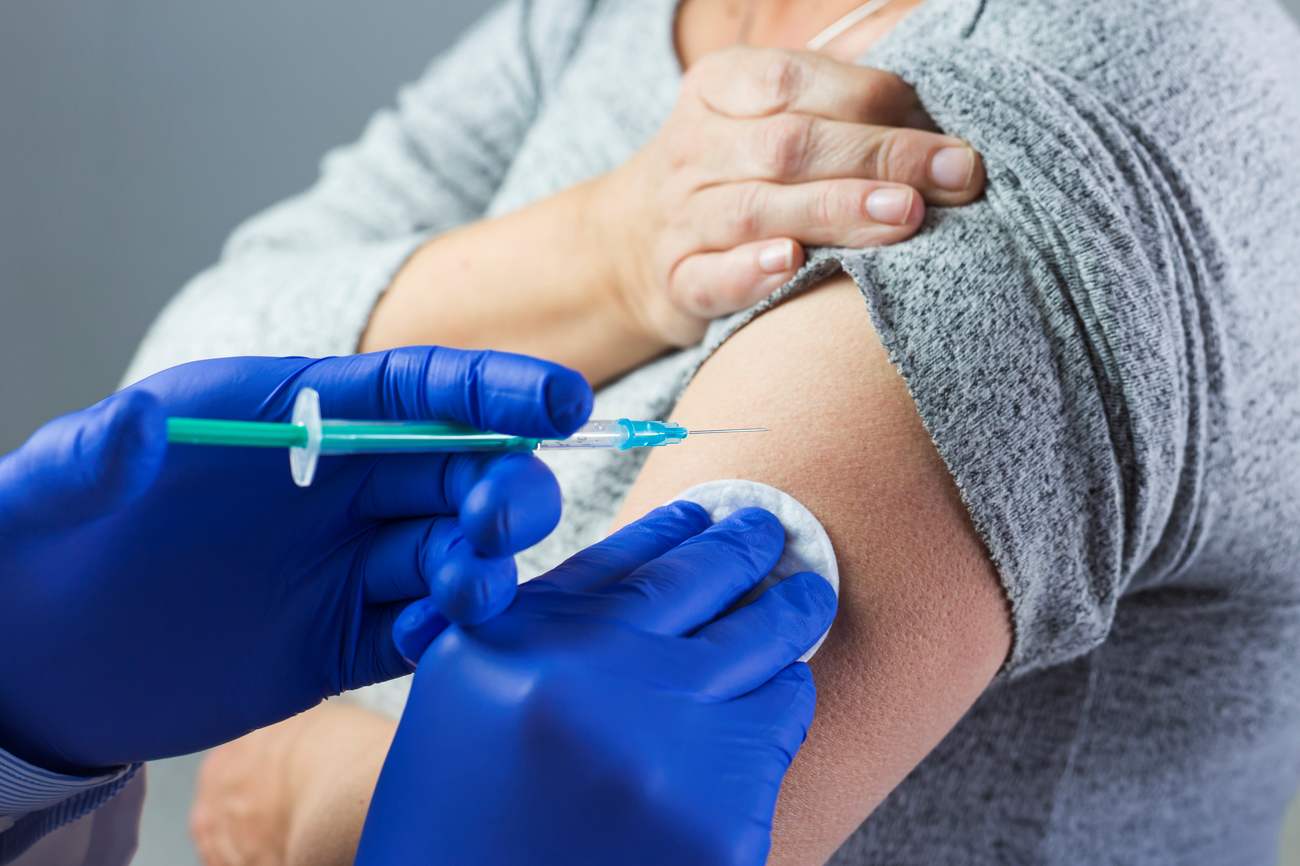The government would prepare a text aiming at making vaccination compulsory for all. A good or bad idea? Interview with Dr. Jean-Michel Wendling, scientific consultant for FDN.

-Is mandatory vaccination for all French people a good thing?
Herd immunity, an objective expected by all countries, should be achieved when at least 80-85% of the entire population is immunized. Today, it is unlikely that this objective can be achieved through adult vaccination alone. Indeed, the population aged 18 years or older represents 78.5% of the national population (INSEE) and an opinion survey suggests that at least 20% of adults are currently reluctant or opposed to vaccination. We are therefore in an equation where collective immunity will probably be approached by a share of natural immunization by the Covid (22.7% a priori in April according to the Pasteur Institute) and for another share by the vaccine.
-And therefore?
The obligation to vaccinate the entire population raises questions, especially among children and adolescents. As such, the French Society of Pediatrics (SFP) and 11 other affiliated learned societies (GFRUP, GPIP-InfoVac, M3C, SFEIM, SOFREMIP, SFCE, SFNP, SHIP, SNP, SP2A, Association Française de Pédiatrie Ambulatoire) have issued an opinion on the indication of this vaccination among the pediatric population: “COVID-19 in children is most often asymptomatic, children are not very contagious and very few severe forms have been described, even for those with chronic pathologies. Currently, there are very few efficacy and safety data available for these vaccines in children. To date, this vaccination does not appear to be necessary in children in the general population, except for children at very high risk.
-What benefit for children and adolescents?
A very complete analysis of the literature was carried out in June 2021 by the Conseil Consultatif National d’Ethique (CCNE): the direct individual benefit of vaccination for children and adolescents is very limited in terms of risks related to infection. The existing hindsight does not allow us to ensure the full safety of these new vaccines in adolescents. For the CCNE, vaccination of children under 12 years of age does not seem ethically and scientifically acceptable. In adolescents, between the ages of 12 and 16, the individual benefit in relation to the infection is very low in the absence of comorbidity and does not seem sufficient to justify vaccination on its own.
However, it is permissible to vaccinate adolescents against Covid-19 if they request it, but only after clear and appropriate information on the uncertainties related to the disease, the vaccine itself, its medium- and long-term efficacy, as well as on other alternatives for preventing the disease. Vaccination is a protective measure for the population that should be deployed as part of a global strategy that includes measures to reduce transmission as a priority, as Singapore does very well, with only 36 deaths for 6 million inhabitants: strict hygiene measures, especially around meals, effective testing and isolation of patients, retro-tracking and treatment.
-Can a person vaccinated against Covid-19 still get the coronavirus? Why?
These vaccines are not perfect and they have to deal with a rapidly mutating virus. A vaccinated person is of course likely to contract the COVID because the vaccines provide a circulating immunity but not a sufficient defense at the mucous level (nose, digestive tract). A vaccinated person is even likely to have a severe form of the disease and to die. We have recently seen this in Belgium in this EHPAD in Tayons, Nivelles, where 12 residents died and in Landes where two residents died, all vaccinated.
These particular cases must be analyzed. However, the latest collective data from the United Kingdom show that the risk of death from the delta variant is reduced by a factor of about 2.7 in vaccinated persons (1.4%) compared to non-vaccinated persons (3.8%) over the age of 50. These overall analyses show that the benefit/risk ratio is in favor of vaccination for the over 50s.
For the 18-50 age group, vaccination also reduces the risk of hospitalization and the natural immunization of the population should contribute to herd immunity to reduce the circulation of the virus.
-Can this vaccinated person transmit the virus to others?
From the moment a vaccinated individual can contract COVID, he is obviously a potential carrier and transmitter. The same is true for recovered patients (published study) who can reinfect and transmit to third parties as it happened to four caregivers who contaminated 21 hospitalized patients and 19 colleagues in February 2021. However, when analyzing the collective data, the English showed that the probability of transmission in the home would be about 40-50% lower in households of index patients who had been vaccinated 21 days or more before testing positive than in households of unvaccinated index patients. It should be noted that the same study shows that in 9 out of 10 cases, the index patient does not infect his or her relatives for the unvaccinated. In addition to the vaccine, isolation measures such as eating alone for a few days and hand hygiene are essential to protect family members.
-Why is it said that an unvaccinated person would be “selfish”: Can he or she transmit the virus more easily than a vaccinated person?
Vaccination is understood in a logic of collective protection. By reducing my risk of getting sick or transmitting, I participate in the chain of risk reduction like washing my hands or wearing my mask. The logic for the vaccine is the same. By protecting myself, I protect others. In the car, by driving at a reasonable speed, I protect myself and others. Finally, the vaccine is an air bag system that mitigates the accidental event. By analogy, hand hygiene or the mask are the brakes of the car that avoid the accident beforehand with a powerful efficiency since hand washing is associated with a 98% risk reduction according to the researchers of Macao and the Chinese CDC.
-Do Pfizer, Moderna, AstraZeneca vaccines protect against the Delta variant?
When we talk about “protection” with these vaccines, we should rather mean a statistical reduction in the risk of developing a severe form of the disease or dying. The Delta variant would be 60% more contagious than the strain, which means that an individual would infect 5.8 people on average instead of 3.
Concerning vaccination, in the United Kingdom, 3,546 infections of doubly vaccinated people over 50 years old were noted against 976 infections of non-vaccinated people, which makes it possible to evaluate a vaccine effectiveness of 60.5% against the Delta variant (70.8% in people under 50 years old), according to the calculations of Dr. Nicolas Gambardella, director of SaSciStance in Cambridge. His analysis of the data shows a much better efficacy of the Pfizer vaccine (87.9%) compared to the Astra Zeneca vaccine (59.8%) against the delta variant.
For the other vaccines, data are not yet available. As a result, as reported by our colleagues in Le Monde, hospitals across the UK are not filling up at the same rate as during the second wave, which occurred during the winter: on 26 June 2021, there were 14 hospital admissions for every 1,000 infections, whereas on 12 January, at the height of the second wave, this proportion was 101 hospital admissions for every 1,000 infections.
-Do you know where studies on a possible universal vaccine are at?
We already know that some vaccines are outdated by the variants, such as Astra Zeneca against the South African variant (beta) with a low response of 10%, which means that the efficacy is not there on this minority strain, which is not very present in France at the moment.
While mRNA vaccines are resisting rather well for the moment, dozens of start-ups are working on a universal vaccine, capable of producing an immune response regardless of the mutations. Among these biotechs is Osivax, a Lyon-based company developing a universal vaccine against current and future influenza infections. Their vaccine candidate OVX836 is in Phase 2a clinical development. Osivax is using the same platform technology to develop a universal vaccine against all existing and emerging coronavirus infections, based on nucleocapsid, an internal antigen of the virus that does not change much (89% between SARS-CoV-1 that appeared in 2003 and the current SARS-CoV-2). Phylex BioSciences or the Belgian biotech, eTheRNA, use the S protein of the virus, but only on its stable part. About sixty of these fragments are then assembled on a 3D structure mimicking the whole protein in a virus-like particle.
The idea of eTheRNA is also to administer the vaccine in the form of a nasal spray to obtain local barrier immunity. The Canadian company VBI Vaccines is playing a different card, although like Phylex it uses a virus-like particle. All of these studies are in the preclinical or phase 1 phase, so they are far from being completed in the short term.
-Do you know if researchers are making progress on preventive or early treatments for Covid?
Vitamin D does not claim to be a curative treatment at this time. However, it is an essential and useful pro-hormone for insufficient or deficient subjects, as Prof. J.M. Sabatier and C. Annweiler. Vitamin D deficiency is associated with severe forms of the disease. It is therefore legitimate to start by supplementing the deficient and the insufficient as called by a group of 73 French experts and the Academy of Medicine: interesting to face respiratory infections in general but also to improve the immune response to the vaccine. The United Kingdom has also conducted in late 2020 a large supplementation operation with more than 2.7 million vulnerable. On a curative level, Cédric Annweiler, head of the geriatrics department at the University Hospital of Angers, who is leading the study named CoViTrial, labeled as a “national research priority”, should soon deliver the results of his clinical trial.
Concerning other molecules, the subject is still topical with studies underway for Ivermectin, which would be associated with a 52 to 76% risk reduction in hospitalizations according to a pre-published study presented by the Ministry of Health of Mexico on an observational cohort of 233,849 patients, but this product is not recommended outside of clinical studies in Europe.
The THERAPIDE project of the Pasteur Institute of Lille, labeled “National Research Priority”, received a favorable opinion from the ANSM on June 10: the clinical trial of Clofoctol suppository is therefore underway.
Other recent studies show interesting effects of sartan, a molecule used as an anti-hypertensive and brake of the renin angiotensin system, or of Quercetin.
However, these molecules are not currently authorized for prescription in the community. The results are still awaited in order to multiply the weapons against Sars-Cov-2.
From my point of view, making vaccination of the entire population mandatory in 2021 is a question that must be submitted to the CCNE: it is an ethical question that must take into consideration all available data. We must stop pitting people against each other and stigmatizing the non-vaccinated, and be patient because every day research advances and new solutions emerge.
*Dr. Jean-Michel Wendling, a specialist in occupational health prevention in Strasbourg, is a scientific consultant for infodujour.fr.

